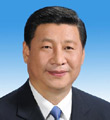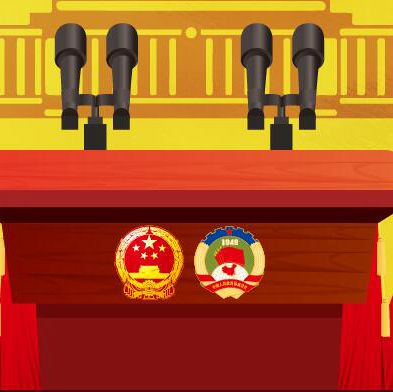NPC FAQs
- The PLA elects its own deputies to the National People's Congress by a system of electoral servicemen congresses. These deputies are elected by the servicemen congresses from general PLA departments and units at the level of major military command as well as the General Office of the Central Military Commission.
- The members of the PLA Electoral Committee are subject to the approval of the NPC Standing Committee. The members of the electoral committee at all other levels are subject to approval of the electoral committee at the next higher level.
How is the quota of PLA deputies to the NPC determined and allocated?
The number of deputies to be elected from the PLA to the National People's Congress is decided by the NPC Standing Committee.
- Yes. All deputies to the National People's Congress are subject to supervision by the electoral units that elected them. Such electoral units have the right to recall deputies they elect.
How is the number of deputies to local people's congresses, at various levels, defined?
The number of deputies to the local people's congresses, at various levels, is determined in accordance with the following provisions.
- The Electoral Law was adopted at the Second Plenary Session of the Fifth National People's Congress on July 1, 1979.
What are the powers and functions of the NPC Standing Committee?
According to the Constitution and the statutes of the National People's Congress, the NPC Standing Committee has powers and functions as follows.
What are the NPC procedures for the proposal and deliberation of bills?
Bills submitted for consideration by the National People's Congress can come from both NPC and government departmental sources. The detailed procedures are laid out in the provisions of the Organic Law of the National People's Congress and the Rules of Procedure for the National People's Congress.
- The National People's Congress, the highest organ of state power, is composed of some 3,000 deputies. Deputies to the NPC are organized into delegations according to the units elected them. A Presidium is elected from among the NPC deputies at a preliminary meeting and provides the chair for plenary sessions of the NPC. Various special committees are established to assist the NPC in its legislative work.
- NPC meetings may take the form of preliminary meetings, presidium meetings, plenary sessions of the full NPC, meetings of delegations and closed-door sessions.
- In accordance with the provisions of the Constitution, NPC sessions are held annually and are convened by the NPC Standing Committee.
- The Presidium plays a leading role in organizing the work of the NPC and provides the chairs of meetings. Its members are elected from among the deputies at a preliminary meeting.
- According to the NPC Rules of Procedure, the heads and deputy heads of the various NPC delegations are elected at the plenary sessions of their delegations. To be eligible for election they must be deputies to the National People's Congress.
How long do members of the NPC Standing Committee serve?
How long do members of the NPC Standing Committee serve?
The term of office for members of the Standing Committee is five years and corresponds with the tenure of members of the NPC itself. The Chair and Vice Chairs may not serve more than two consecutive terms.
Highlights of the Sessions >>
- Full text: Work report of NPC Standing Committee
- Full text: Report on China's economic, social development plan
- Full text: Report on China's central, local budgets
- Full text: Report on the Work of the Government
- Highlights of work reports from SPC and SPP
- Xi orders breakthrough in military theory
China.org.cn Exclusives >>
NPC deputy: Wind turbine manufacturing not hurt by overcapacity

- Zhang Chuanwei, an NPC deputy and an industrial figure, dismissed the allegation that overcapacity is bogging down China's wind turbine manufacturing sector.








